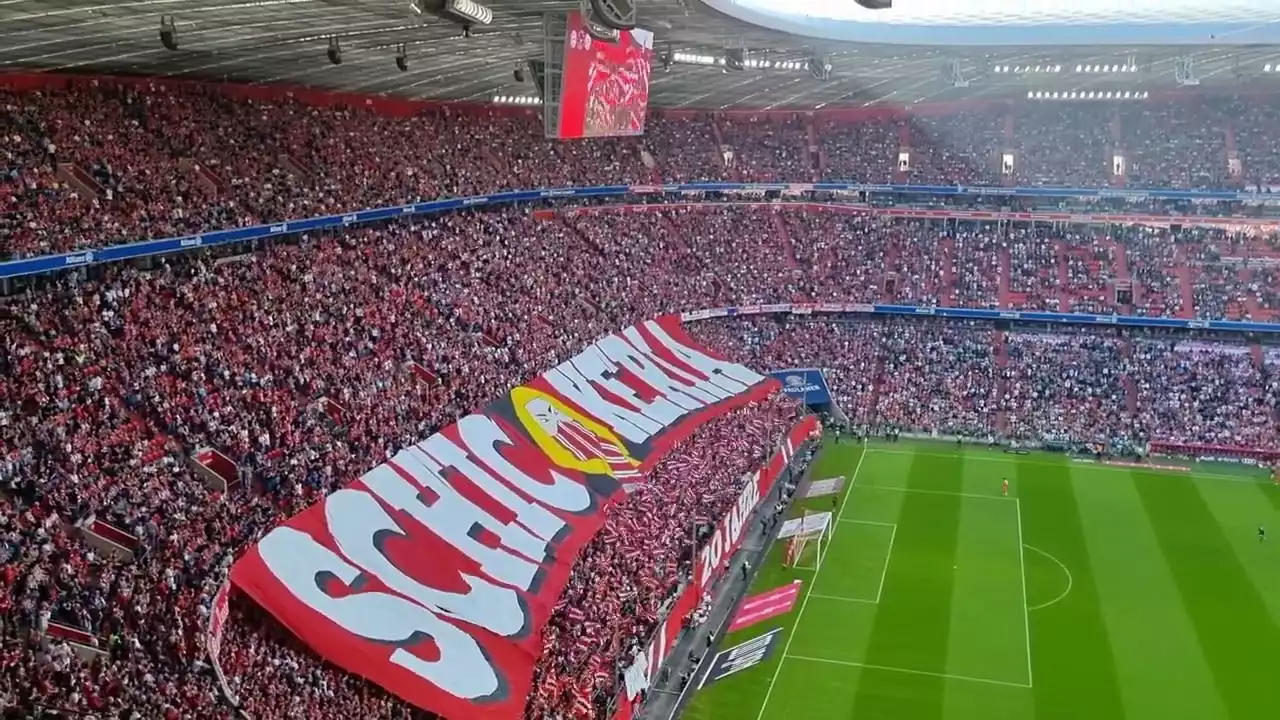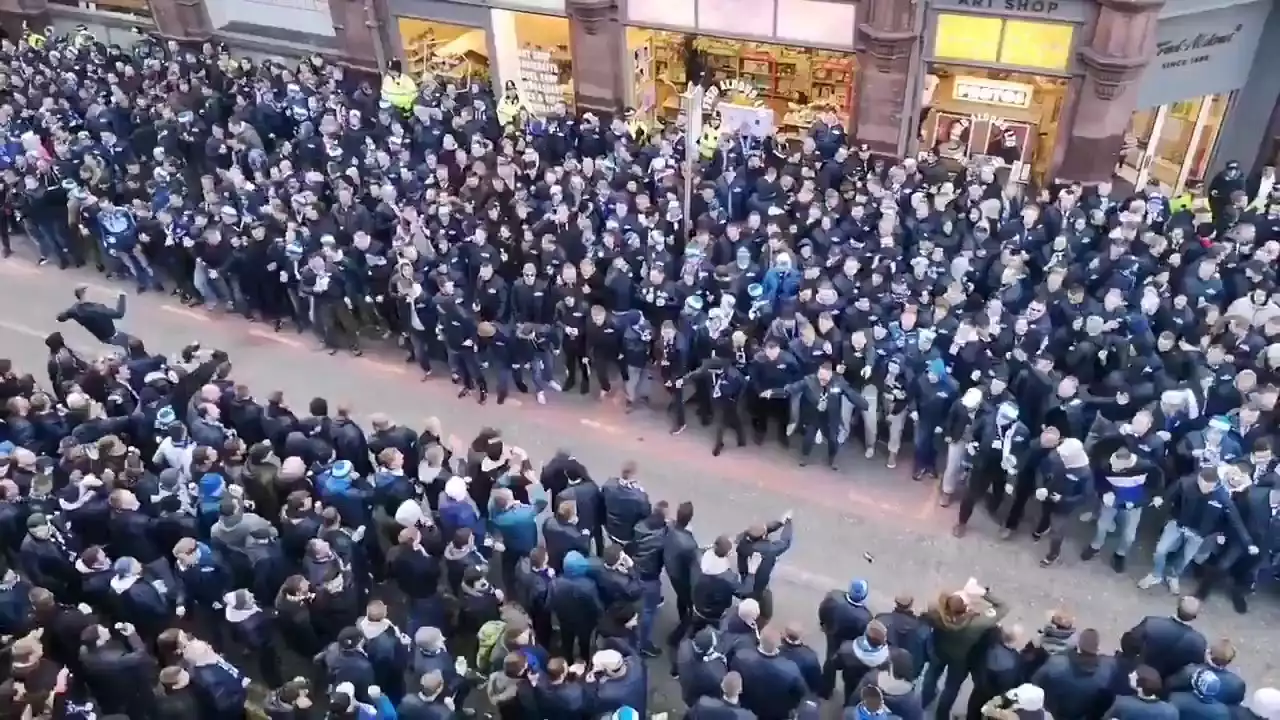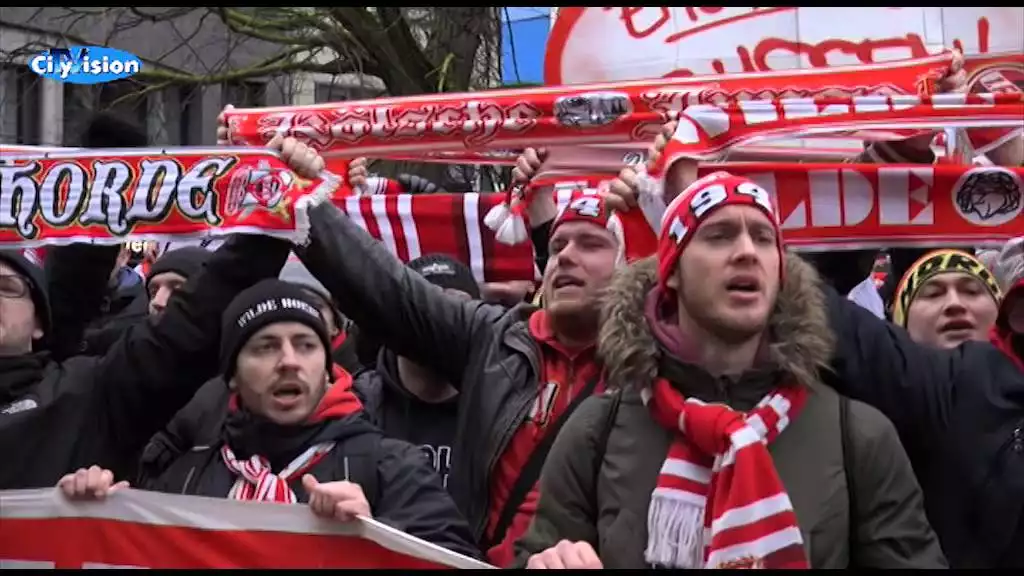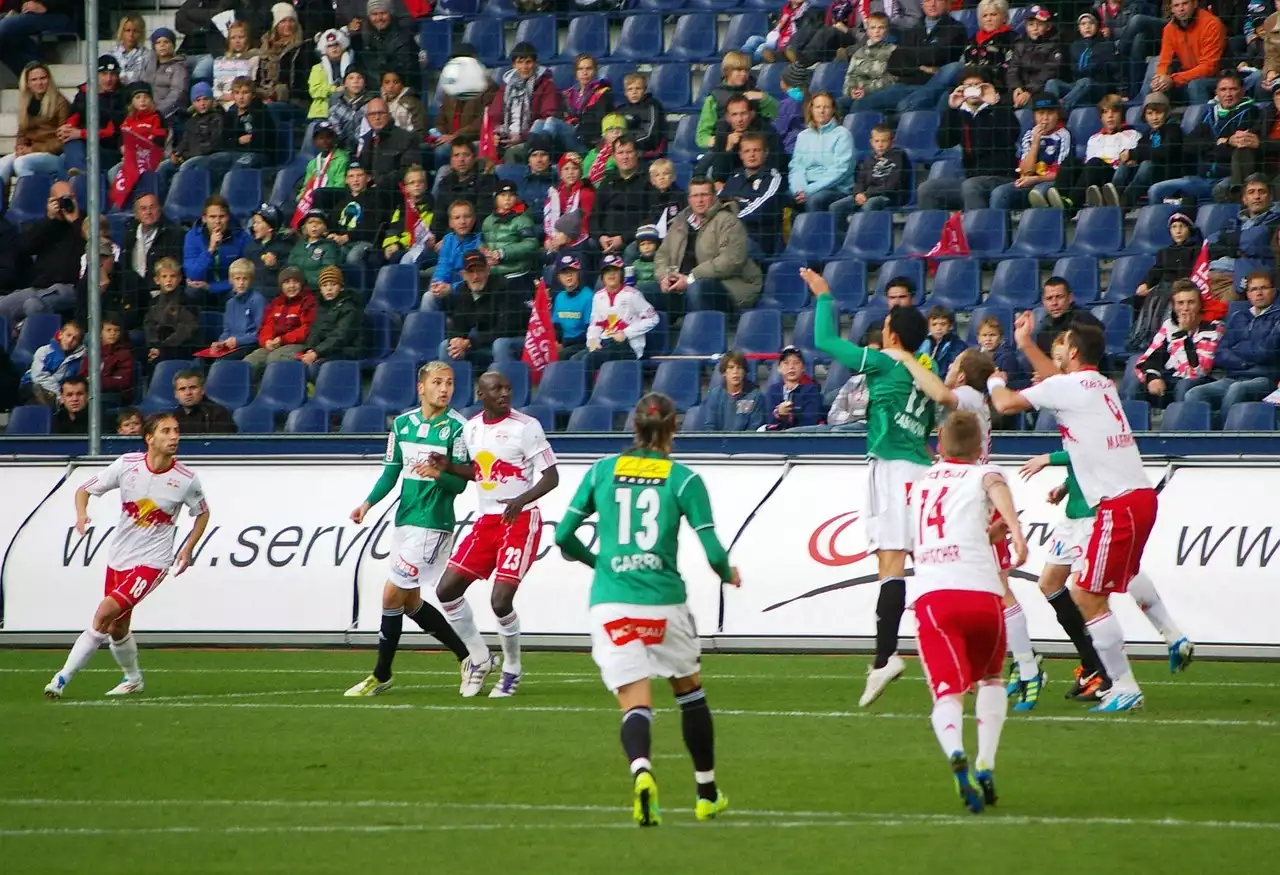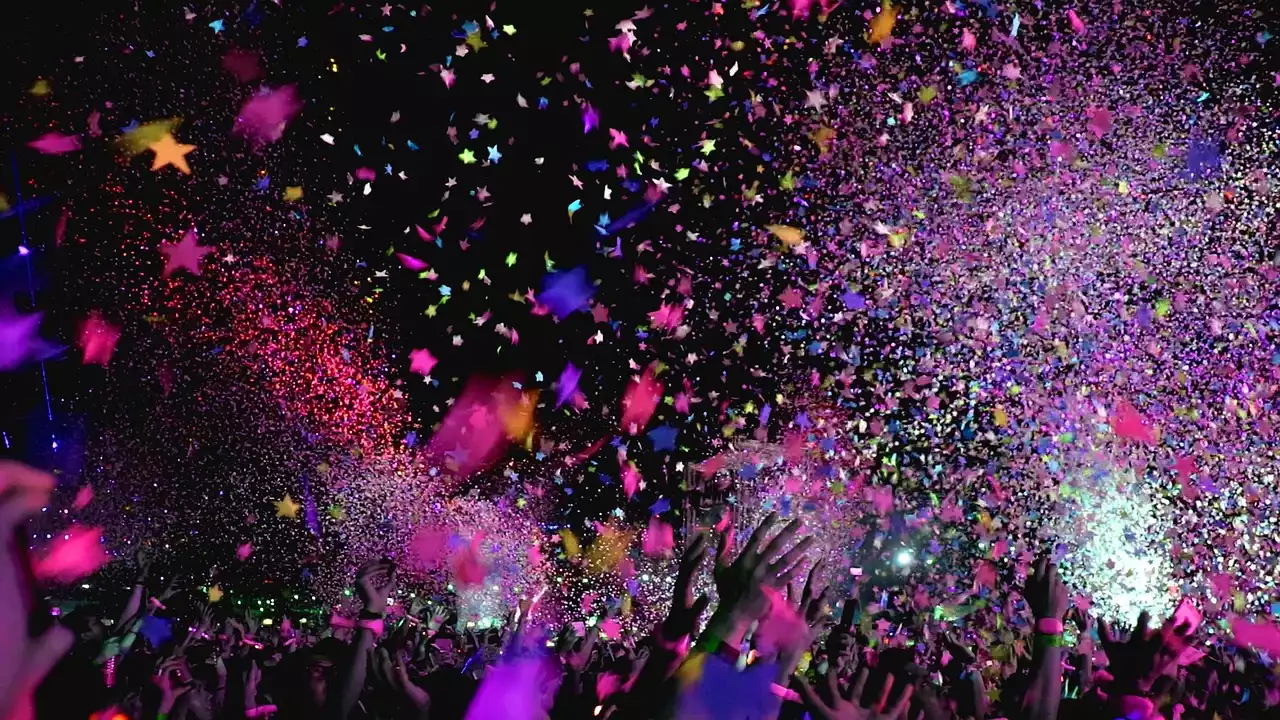Why fan groups are important in DFB-Pokal
Fan groups play a crucial role in the success and vibrancy of the DFB-Pokal. They are the lifeblood of the game, injecting energy and passion into every match. These dedicated supporters not only cheer for their teams but also act as the 12th man, motivating players and influencing the outcome of games. Their unwavering support creates an incredible atmosphere in stadiums, making the DFB-Pokal a spectacle like no other. Without fan groups, the tournament would lose a significant part of its essence and charm.
Fan groups are also important for the financial success of the DFB-Pokal. Their loyalty and dedication translate into increased ticket sales, merchandise purchases, and television viewership. The revenue generated from these sources allows clubs to invest in player development, infrastructure, and overall growth. Therefore, fan groups are not only instrumental in creating a thrilling match experience but also in ensuring the long-term sustainability of the tournament.
The criteria for determining the most passionate fan groups
Determining the most passionate fan groups in DFB-Pokal history is no easy task. Several factors contribute to a fan group's passion and dedication. First and foremost is their unwavering support and devotion to the team. This includes attending matches, creating vibrant displays, and generating a lively atmosphere in stadiums. The fan group's history and traditions also play a significant role. Longevity and consistency in their support demonstrate a deep-rooted passion that goes beyond individual matches or seasons. Lastly, the impact the fan group has on the team's performance and the overall match experience cannot be overlooked. The ability to motivate players and create an intimidating atmosphere for opponents is a testament to their passion and dedication.
The 5 most passionate fan groups in DFB-Pokal history
1. Borussia Dortmund's "Yellow Wall"
Borussia Dortmund's fan group, known as the "Yellow Wall," is arguably the most famous and passionate fan group in German football. Occupying the iconic Südtribüne, which is the largest standing terrace in Europe, they create a wall of yellow and black, cheering their team on with unmatched fervor. The Yellow Wall is known for their synchronized chants, impressive choreographies, and unwavering loyalty. Their support has been a driving force behind Borussia Dortmund's success in the DFB-Pokal, creating an atmosphere that is both intimidating for opponents and inspiring for players.
2. Bayern Munich's "Schickeria"
Bayern Munich's fan group, the "Schickeria," is renowned for their passionate support and unwavering loyalty. They fill the Allianz Arena with a sea of red and white, creating an electrifying atmosphere on matchdays. The Schickeria is known for their creative choreographies, powerful chants, and immense energy. Their support has propelled Bayern Munich to numerous DFB-Pokal victories, and their presence in the stands is a testament to their unwavering dedication and love for the club.
3. FC St. Pauli's "Ultras"
FC St. Pauli's fan group, the "Ultras," is known for their passionate support and social activism. Beyond their unwavering loyalty to the team, the Ultras of FC St. Pauli also advocate for social justice and equality. They often display banners and flags with political messages, emphasizing their commitment to inclusivity and diversity. The Ultras create a vibrant and inclusive atmosphere at matches, making FC St. Pauli's matches a unique experience in the DFB-Pokal.
4. Hamburger SV's "Rautenperle"
Hamburger SV's fan group, the "Rautenperle," is known for their unwavering support and passionate chants. They bring color, energy, and enthusiasm to matches, creating a lively atmosphere in the Volksparkstadion. The Rautenperle is also known for their impressive displays and choreographies, which add an extra layer of excitement to Hamburger SV's DFB-Pokal matches. Their dedication to the team and the club's rich history makes them one of the most passionate fan groups in DFB-Pokal history.
5. 1. FC Union Berlin's "Eisern Union"
1. FC Union Berlin's fan group, known as "Eisern Union," is renowned for their passionate and unwavering support. The Eisern Union fills the Stadion An der Alten Försterei with a sea of red and white, creating a captivating atmosphere on matchdays. Their chants and songs echo throughout the stadium, motivating players and intimidating opponents. The Eisern Union's loyalty and dedication have made them one of the most passionate fan groups in the history of the DFB-Pokal.
Fan traditions and rituals of each fan group
Each fan group has its own unique traditions and rituals that contribute to their passionate support. Borussia Dortmund's Yellow Wall, for example, is known for their synchronized chants, particularly the famous "You'll Never Walk Alone" before kickoff. Bayern Munich's Schickeria often displays massive tifo choreographies that cover the entire stadium, creating a visually stunning spectacle. FC St. Pauli's Ultras, in addition to their support for the team, actively engage in social activism, often displaying banners and flags with political messages. Hamburger SV's Rautenperle and 1. FC Union Berlin's Eisern Union have their own chants, songs, and fan choreographies that add to the electrifying atmosphere in their respective stadiums.
Impact of fan groups on the team's performance
Fan groups have a significant impact on the team's performance in the DFB-Pokal. Their unwavering support and passionate chants create an atmosphere that motivates players and can often swing the momentum in favor of the home team. The sheer energy and noise generated by fan groups can disrupt opponents' concentration and make it challenging for them to communicate effectively on the pitch. Additionally, fan groups serve as a constant reminder of the team's history and the expectations placed upon the players. The support and pressure they provide can push players to give their all and achieve exceptional performances.
Challenges faced by fan groups in DFB-Pokal
Despite their passion and dedication, fan groups in the DFB-Pokal face numerous challenges. One of the most significant challenges is the increasing commercialization of football. As clubs seek to maximize revenue, ticket prices often rise, making it more difficult for some fans to attend matches regularly. Additionally, strict security measures and regulations imposed by authorities can limit the freedom of expression for fan groups. The balance between maintaining a safe environment and allowing fan groups to express their passion is a delicate one.
How fan groups contribute to the overall atmosphere of the tournament
Fan groups contribute immensely to the overall atmosphere of the DFB-Pokal. Their vibrant displays, synchronized chants, and unwavering support create an electrifying environment in stadiums that transcends the on-field action. The atmosphere generated by fan groups adds to the spectacle of the tournament and enhances the experience for both players and fans. Moreover, the passion and dedication of fan groups inspire future generations of supporters, ensuring the continued growth and success of the DFB-Pokal.
Honorable mentions: Other notable fan groups in DFB-Pokal
While the focus of this article has been on the top five most passionate fan groups in DFB-Pokal history, there are several other notable fan groups worth mentioning. FC Köln's "Boyz" and Schalke 04's "Ultras Gelsenkirchen" are known for their passionate support and impressive choreographies. Eintracht Frankfurt's "Ultras Frankfurt" and Hertha BSC's "Harlekins" also deserve recognition for their unwavering loyalty and colorful displays. These fan groups, along with many others, add to the rich tapestry of German football fandom in the DFB-Pokal.
